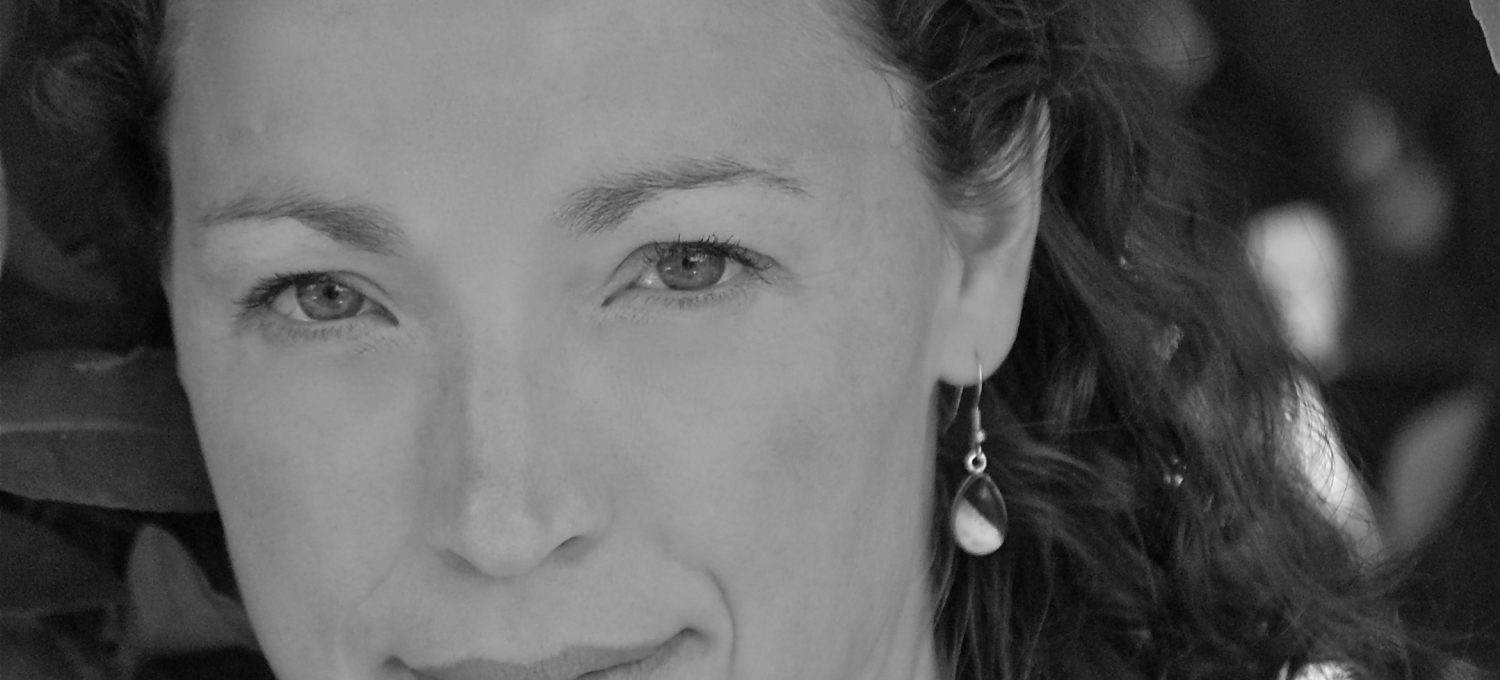KW: What was your meditation practice like before you did your training at Brown University’s Center for Mindfulness?
AM: Although I had been interested in meditation for many years before, I started a daily sitting meditation practice when my daughter was born 14 years ago. Since beginning the Brown University program from their Mindfulness Center, I have expanded my practices to include the body scan, walking meditation, and informal daily mindfulness practices.
KW: What inspired you to want to go to the next step with this particular intensive program? Your website mentions you witnessing the struggles your students faced during the pandemic. Having been fortunate enough to have known you for years now, I know that you are a problem solver. What specific problem(s) were you trying to solve?
AM: I wanted to learn how to offer meditation to my students to help them build resiliency and self-efficacy and maybe come a little bit closer to living that famous quote, “Stress is inevitable, strain is optional.” Mindfulness practices can reduce stress reactivity by training attentional and emotional regulation. Our practice shines a light on thoughts, emotions, and physical sensations by providing a moment of awareness which gives us just a little more space and time to make choices aligned with the way we want to live, with our own values. That ability to pause and see what’s happening in a moment from several perspectives can help develop clarity in our thinking, and allows us to notice patterns of behavior. I have also noticed it helps clarify whether stressors are things that are within or outside of our control, which is particularly helpful for my students.
In addition, a meditation practice is an invitation for connection with yourself, which in turn makes us more available and connected to others.
KW: Benefits of meditation – lots of people know about these and many are clearly listed on your website (lower blood pressure, reduction in anxiety and irritability, helps with sleeps, improves attention.) Are there benefits that were surprising when you found out about them? Are there particular benefits that are applicable to performing artists? Students?
AM: Among the most powerful practices my students have experienced within the context of the Mindfulness-Based Stress Reduction class are the practices of Mindful Listening and Mindful Speaking. Listening fully and without judgment (to yourself and others), instead of having our attention divided between listening and planning what we will say next, is in itself a contemplative practice and an important musical practice in chamber and large ensemble context.
My students and I have also benefited enormously from Jon Kabat Zinn’s attitudinal foundations of mindfulness. Actively practicing non-judgment, patience, beginner’s mind and acceptance, for example, are powerful practices for musicians both in and out of the practice room.
KW: Can you offer some helpful suggestions for people seeking to build/develop their own meditation practice?
AM: Practicing with a group can provide both accountability and support. I offer a weekly Mindful Monday practice over zoom with no cost or commitment. This group is open to new or long term practitioners. If you are interested or curious, email me at martin_andree@columbusstate.edu for the zoom link! As flutists we rely on our teachers, chamber partners, and flute colleagues to continue our growth as musicians. I would encourage anyone interested in starting a meditation practice to seek a community for support and encouragement.
If you are looking for guided practices, there are many wonderful resources available, including apps like Insight Timer. Brown University’s Mindfulness Center offers a community practice over zoom (https://www.brown.edu/public-health/mindfulness/home). I also highly recommend taking the Mindfulness-Based Stress Reduction (MBSR) course.

KW: I am a serial meditator—I do it for a while, then forget, then realize, “Hey I haven’t done that in a while.” Do you have suggestions for building consistency?
AM: Three ideas come to mind. First, dedicating a small corner of a room in your home as your meditation space can be very supportive. Seeing the space as you pass by can remind you to sit, just like seeing an étude book on our music stand can remind us to practice. Every habit should have a home! Second, it can help to practice at the same time every day, perhaps in the morning before the activities of the day begin. Third, practicing with a group in person or online can help provide consistency.
KW: When working with flute students, do you incorporate meditation? If so, how do you do that?
AM: Yes, I have introduced different breathing practices and meditation within a studio class setting. I also offer complementary contemplative practices like constructive rest, for example. On a practical level these practices can help train attention and awareness, build resiliency, self-efficacy, and compassion for oneself and others.
KW: My students often report that they don’t know what they should be doing when they try constructive rest, which could be considered a type of meditative practice? They have had better luck with listening to some YouTube videos of NSDR (Non Sleep Deep Rest). Do you have suggestions? They seem to want to be guided. Do you like any of the apps available, like Mindfulness USC or Head Space?
AM: Absolutely! Insight Timer is a free app which offers many different guided practices. Many schools, including all universities in Georgia, offer Headspace for free for students. If students don’t have free access, Headspace offers an annual subscription for about $10 for all students.
KW: I seem to have more and more students who self disclose that they have attentional disorders like ADHD and find that meditation is so very hard for them. It’s like their kryptonite – anything helpful here?
AM: I think there is a misconception that meditation is about becoming calm or finding a peaceful state. Although those may be the fruit of a practice for some, meditation is about being present with what is here, regardless of what it is, without judgment. It is about coming back to present moment experiences, body sensations, thoughts, and emotions, with an attitude of kindness, self-compassion, and patience. So we aren’t practicing getting calm, we are practicing coming back to present moment awareness with a particular attitude, non-judgment. Of course, this takes practice and isn’t always available, but that is why we practice! Again, it is important to find a community of support; sharing our practice with a group can help highlight the universal challenges we all face in our meditation practices. It isn’t about being good at it or not, it’s a practice of bringing awareness to present experience, whatever that is.
KW: Who are your favorite meditation authors/writers?
AM: I am always curious to learn more about both the science and the contemplative underpinnings of my practice. It’s hard to choose favorites, but authors Jon Kabat Zinn, Christina Feldman, Thich Nhat Hanh, Eric Loucks, Bob Stahl, Richard Davidson, Saki Santorelli, and Pema Chödrön have written resources I return to continually.
KW: Is there anything else you’d like us to know?
AM: It is important to mention that although there is a lot in the media about the benefits of a mindfulness practice, the risks are less widely reported. Research by Willoughby Britton and David Treleaven explores trauma-sensitive mindfulness. A sitting meditation practice isn’t always a good idea. Learning more about the risks and benefits might be a good place for us all to start so we can make informed decisions about whether it is a good time to begin a mindfulness practice.
KW: For more information about Dr. Martin’s Mindfulness-Based Stress Reduction Online Classes, click here (https://www.everydaymindfulnesscourses.com/). Click here (https://www.bodymappingcourses.com/) for more info about Dr. Martin’s body mapping courses.
Bio
Professor at the Schwob School of Music, Newfoundland native Andrée Martin has performed at Carnegie and Alice Tully Halls, Lincoln Center, and the National Flute Association and American Musicological Society Conventions. She includes playing Elliott Carter’s Enchanted Preludes for the composer on a concert celebrating his 90th birthday and playing Le Marteau Sans Maître at Carnegie Hall with Pierre Boulez conducting among her most thrilling performing experiences. She has been published in Flute Talk and the Flutist Quarterly and serves as vice-president on board of the Atlanta Flute Club. Andrée was named the Sam and Jacquie Rawls Distinguished Professor in Music which provided funds for the Rawls Body Mapping Library for Schwob students.
Andrée is passionate about issues surrounding musicians’ wellness and injury prevention. She is licensed as a Body Mapping Educator and as a Mindfulness-Based Stress Reduction teacher through the Mindfulness Center at Brown University. She has taught Body Mapping for the Seattle, Atlanta, and Las Vegas Flute Societies. She has served on the faculty of Summerflute and as president on the board of the Association for Body Mapping Education. She hosted the 2017 International Body Mapping Conference at the Schwob School of Music. Information about her Body Mapping courses can be found at www.bodymappingcourses.com and about her mindfulness courses at www.everydaymindfulnesscourses.com.
Andrée’s students have performed at Carnegie Hall, Royal Albert Hall, and are winners of, among others, the Yamaha Young Performing Artist, Golden Classical Music International, American Protégé, Grand Prize Virtuoso International “London”, Alexander & Buono International, Atlanta Flute Club, Oklahoma Flute Society, and Artist International Competitions. As an advocate for international education, Andrée has taught Body Mapping and Renaissance music history courses in Italy, France, and Oxford, England.

